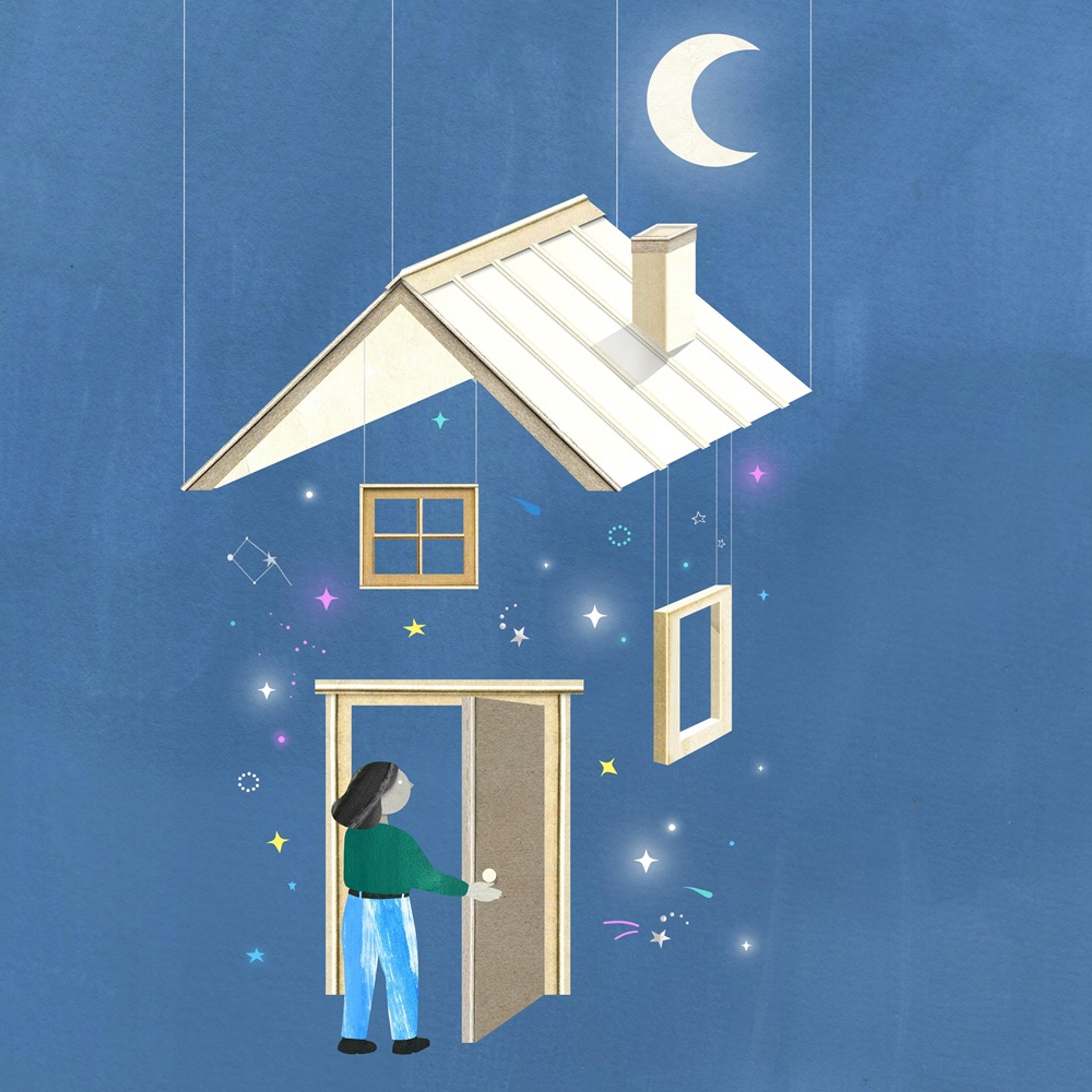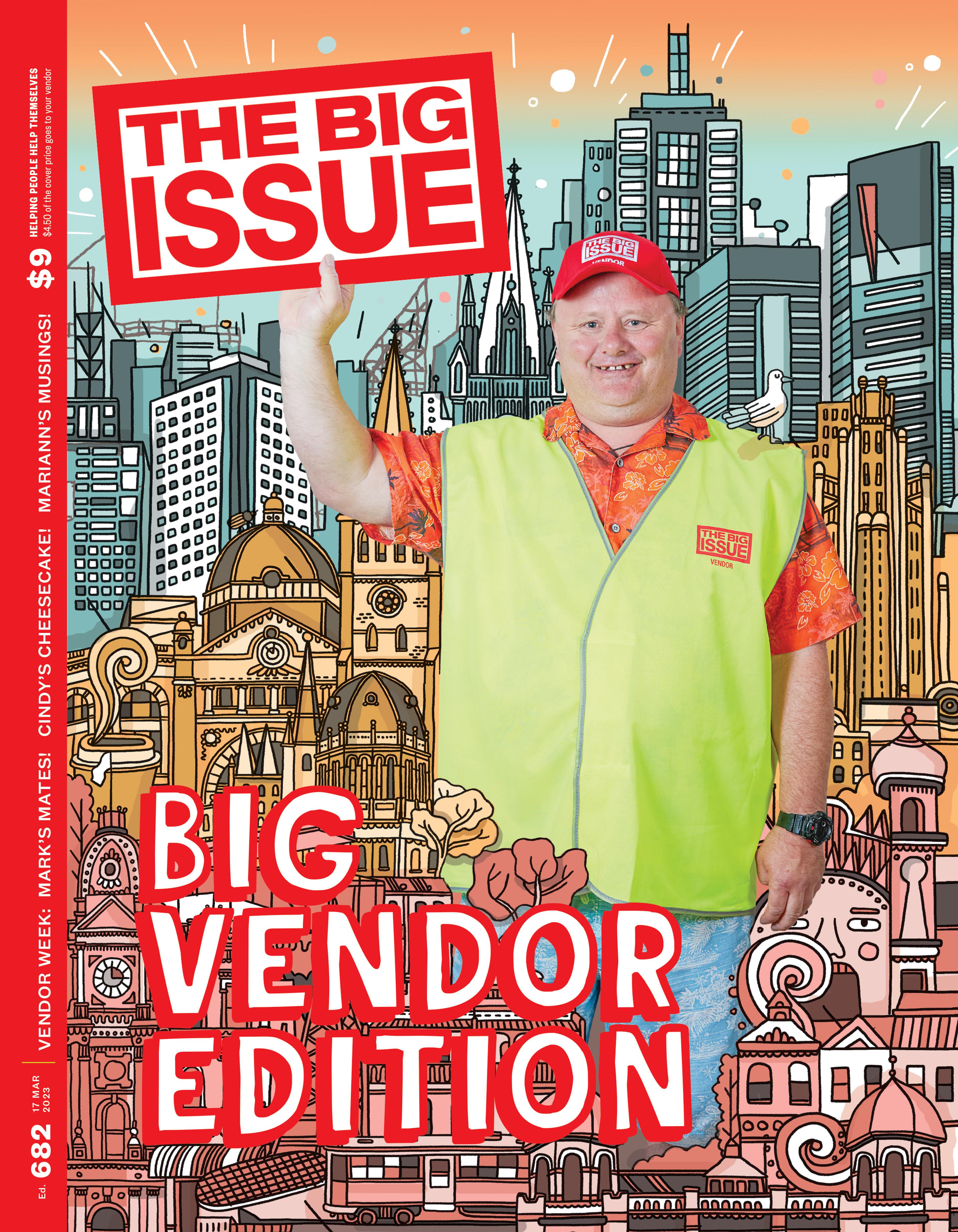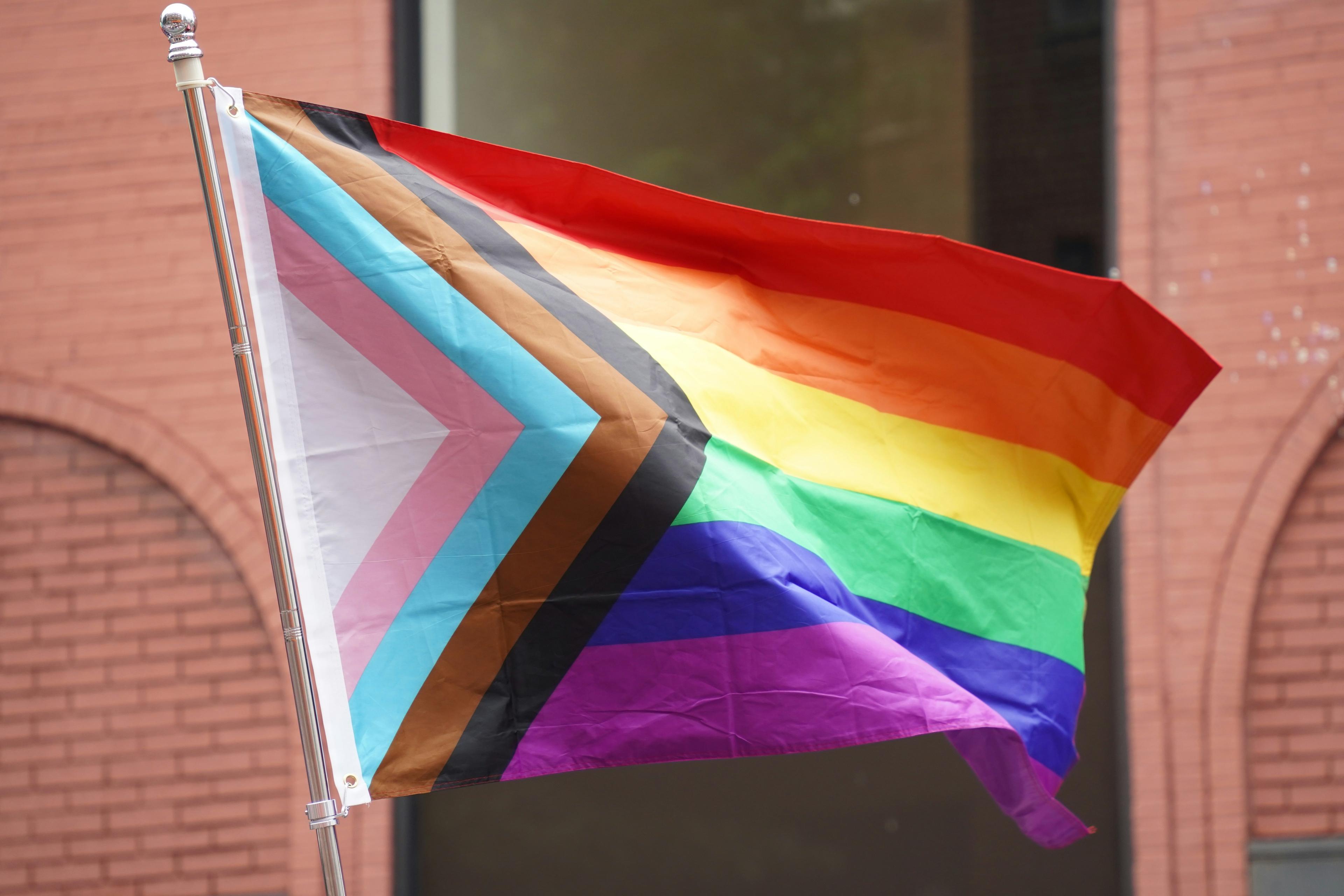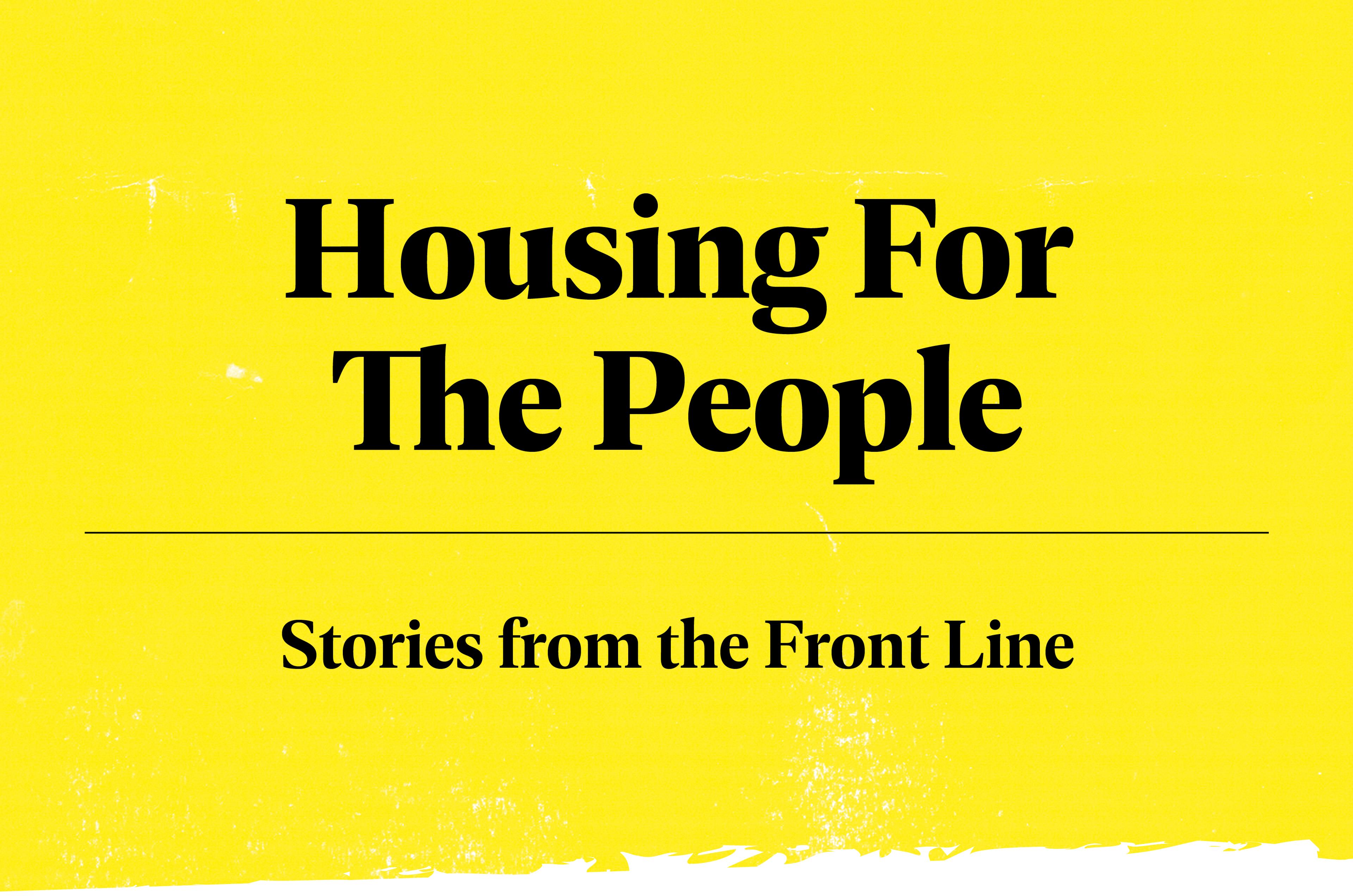Inside Australia’s criminalisation of rough sleeping

Illustrations by Nancy Liang
By Sophie Quick
- Lived experience

Tracey is a grandmother in her fifties, based in Lawnton, north of Brisbane. She admits that she’s the kind who spoils her grandchildren. “My son says I’m like T-rex with him and like Barney the Dinosaur with the kids,” Tracey laughs. “He reckons I let them get away with anything.”
Tracey helps out with babysitting quite a bit, especially when her son is travelling for work. But it’s complicated, because Tracey and her partner, Shane, have been homeless for around two years.
In 2022, they were renting an apartment in Fortitude Valley, Brisbane, for $360 [$234 USD] per week. But when their lease came to an end, the landlord decided not to renew.
“International students and workers were starting to come back to the city after COVID,” Tracey says. “After we left, they put the rent up to $500 [$325 USD] per week.”
Since then, Tracey and Shane have been camping in parks, sleeping in their car and sometimes – thanks to housing services – staying in short-term motel accommodation or emergency housing. On and off, sometimes for months at a time, they have been sleeping in a tent in Eddie Hyland Park, next to the Pine Rivers showgrounds in Lawnton. There has been an encampment at Eddie Hyland for some years, with around 10 other people living at the park in the early months of 2025.
In February, the local council, City of Moreton Bay, announced that it was amending its local laws to crack down on public camping. “Indefinite camping will not be permitted, and illegal campers will receive a compliance notice to move,” the council said in a statement.
Rough sleepers throughout the area were warned of the changes and handed compliance notices in February and March, threatening fines of more than $800 [$519 USD]. (If unpaid, such infringement notices could lead to court and a larger fine of $8,000 [$5,193 USD].)
On 9 April, council rangers attended Eddie Hyland Park with Queensland Police and removed the tents and belongings of people who had been camping there. Confronting footage published by The Guardian showed a council excavator on site, moving tents and personal items into the back of a garbage truck. (In a statement, the council said that some parts of the site were abandoned and unsanitary, and council officers could not remove them by hand for safety reasons.) Council workers were back again on 24 April, with excavators and police.
On both occasions, people living in the park, including Tracey, were offered referrals by council to specialist homelessness services or to Queensland’s Department of Housing and Public Works. At last count, there were 47,820 people on the waiting list for public or community housing in Queensland, with the average wait time at more than two-and-a-half years.
“Every time council comes to the parks to see us, they ask if they can give our information to [housing services],” Tracey says. “They’ve already got our information. If there was somewhere else to go, do you think we’d be here?”
Tracey says that she spent hours talking to police negotiators on 24 April. “They said they’d call the housing services and find me accommodation. I said, ‘Go for it.’ They couldn’t find me anything, so eventually I let them take down my tent and they finally left.”
A couple of hours later, Tracey got a new tent from a local charity. She set up again in the same spot in the park. “There’s nowhere else to go, and this park is close to the Salvos and out of the way,” she says.
A spokesperson for the City of Moreton Bay says that though compliance notices had been handed out to public campers, no fines have ever been issued. They add that the council acted in response to community complaints about public safety, which resulted in the council repealing their Person Experiencing Homelessness Camping Framework in March.
Up until then, people who were registered with the Department of Housing were permitted to camp while they waited on more permanent solutions, but this is no longer the case. “The State Government is responsible for housing. It is not in Council’s remit to supply free housing; we can only encourage rough sleepers to take up offers of accommodation and support and refer them to agencies that manage housing.”
But there’s a housing supply shortage. Tracey says that rough sleepers are just referred from one service to the next, or sometimes offered a few nights of emergency accommodation at a time. Emergency accommodation is often located far away from family and local services. Is it worth packing up your tent, and all your belongings, for that?
The City of Moreton Bay is not the only local government body that is handing out compliance notices and threatening fines for “storing goods on public land” or “public camping” that effectively criminalise homelessness. Brisbane City Council and Gold Coast City Council also implemented crackdowns on homeless encampments in the first week of May.
The emergence of “tent cities” – and crackdowns in response – is a phenomenon that comes in waves around Australia, says Professor Cameron Parsell, an expert on homelessness at the University of Queensland.
“We saw it in Martin Place, in Sydney, about seven years ago. We’ve seen it in Melbourne, too, so it’s not unprecedented. But what’s happening in Queensland, what’s extreme, is the excavators and the rhetoric from some political figures, which is so hostile,” he says.
Parsell says that threatening people experiencing homelessness with fines, forcing them to move on, and removing their belongings is harmful on many levels. “It causes harm through the loss of their belongings. It causes harm because people moved on – we know this from research – will just have to move somewhere even more excluded, even more dangerous. It also causes harm on a societal level, through a breach of the social contract and seeing the state respond with such force to marginalised people.”
However, pressure from constituents can be a factor in local authorities pursuing such approaches. “These [council] policies cannot be justified, but we need to ensure that when we’re critiquing the council, we’re also critiquing the community,” says Parsell. “I can see why people don’t want to see tents in public parks. But we need to be angry at the systems that mean people end up living in parks, instead of punishing the victims of these systems.”
The right to adequate housing is a human right, and one that Australia is obliged to uphold as a signatory to the International Covenant on Economic, Social and Cultural Rights (ICESCR). But it hasn’t translated into law across Australia. Tamara Walsh is a Professor of Law, also at the University of Queensland, and she describes legal frameworks across Australia on this issue as “backward”.
“In other countries, human rights law has evolved to the point where it’s not lawful to move someone on from a place they’re living in, unless you’ve offered them alternative accommodation,” Walsh explains. “At the moment, there’s no legal impediment to that happening in Australia.”
Moving tents out of sight and offering short-term accommodation or referrals to services isn’t going to make the problem of homelessness go away, Parsell says: “We need to look at the issues underlying homelessness. It cuts across our society and across three levels of government. It is about housing supply, but it’s also about income support. It’s about family violence. It’s about our child protection system, our health system and our education system. That’s where we should be focusing our scrutiny, not on the people who are suffering because of failures across these areas.”
Parsell says that the COVID response to homelessness across our cities was an important example of what is possible if governments decide to frame the problem differently.
“Suddenly governments no longer saw homelessness as a question of poverty, or housing, but instead as a public health issue. Under that framing, they responded radically, and in a way that was far more productive. All of a sudden there was funding to find access to housing immediately for people sleeping rough. It demonstrated that homelessness is a policy problem, and we can make different policy choices if we want to. Getting people off the streets is not a utopian, far-fetched idea.”
Parsell points out that homelessness was a public health issue before COVID, and it remains a public health issue today. “We know already that people die from homelessness,” he says. In the 2021 Census, there were 122,494 Australian people experiencing homelessness. It’s likely to be higher in the next Census. And people experiencing homelessness die an average of 22 to 33 years younger than people who are housed.
For Parsell, there’s optimism to be found in the number of community volunteers who care for people experiencing homelessness every night. “There are a lot of people who are trying to challenge the status quo. Their actions don’t end homelessness, but there are many people who don’t support punitive actions.”
That’s a source of comfort for Tracey, too. “There are people on our side,” she says. “Someone stuck a ‘honk for the homeless’ sign up near the pool! You could hear people honking all the way to the BP.”
That’s nice, she says, but what she really needs right now is a secure place to stay. So, what kind of place would Tracey like to live in, if she could move out of the park? She has a shortlist of dream features: “A door, electricity, running water,” she says. “And I’d like to be not too far from my family.”
Since speaking to The Big Issue for this story, Tracey and Shane have been offered a one-bedroom home, not far from their family, by housing services in Queensland. After two years of homelessness, they have moved in.

